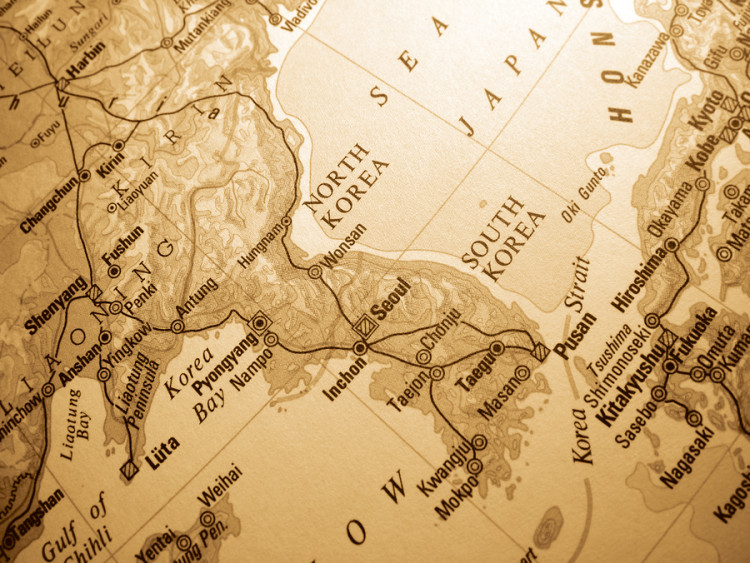U.S. Sees `Four or Five’ Ways to Resolve North Korean Crisis

(Bloomberg) —The U.S. has gamed out four or five different scenarios for how the crisis with North Korea will be resolved, and “some are uglier than others,” National Security Adviser H.R. McMaster said as tensions again peaked between the two countries.
While McMaster said the threat from Pyongyang is “much further advanced” than anticipated and the Pentagon said the president has a “deep arsenal” to draw upon if needed, U.S. officials dismissed North Korean Foreign Minister Ri Yong Ho’s comment that President Donald Trump’s warnings to Pyongyang at the United Nations amounted to a declaration of war.
“We’ve not declared war on North Korea,” White House spokeswoman Sarah Sanders said Monday. “And frankly the suggestion of that is absurd. We continue to seek the peaceful denuclearization of the Korean Peninsula.”
Both governments have said “all options” are on the table in dealing with the tensions, but Ri raised the specter of conflict Monday in New York when he said North Korea would be within its rights to shoot down U.S. warplanes flying in international airspace. Those remarks startled markets, coming just days after the Pentagon sent planes near North Korea’s border in a stepped-up show of force.
“The UN Charter acknowledges member states’ right of self-defense,” Ri said. “As the United States has declared a war, even though its strategic bombers don’t cross our border, we will come to own all rights to respond for self-defense including shooting down its planes at any time.”
B-1 Bombers
B-1B Lancer bombers, based in Guam, and F-15C Eagle fighter escorts from Okinawa, Japan, traveled the farthest north of the demilitarized zone any U.S. fighter or bomber aircraft have flown off North Korea’s coast this century, Pentagon spokeswoman Dana White said last week in an emailed statement.
Military analysts say any conflict between the U.S. and North Korea is likely to lead to a devastating attack by Pyongyang on Seoul, endangering millions of lives.
“There’s not a ‘precision strike’ that solves the problem,” McMaster, an Army lieutenant general, said at an event in Washington hosted by the Institute for the Study of War. “There’s not a military blockade that can solve the problem. What we hope to do is avoid war, but we cannot discount that possibility.”
The rhetorical war between the two countries comes as North Korea leader Kim Jong Un accelerates his ballistic missile and nuclear weapons testing program. In response, the U.S. has led two recent rounds of UN sanctions on the regime, winning support from China, North Korea’s top trading partner, and Russia.
The U.S. is “just now” beginning to see initial results of those sanctions, McMaster said, adding that he thinks it’s in China’s best interest to ensure compliance with the restrictions. China would face “the prospect of a re-arming” in the region and enhanced military activities in South Korea and Japan. “There’s a lot that’s changed,” he said.
The Pentagon said its most recent bomber and fighter exercises were meant to underscore “the seriousness with which we take DPRK’s reckless behavior,” White said last week, using the initials of North Korea’s formal name. “This mission is a demonstration of U.S. resolve and a clear message that the President has many military options.”
U.S. stocks initially fell and bonds gained after Ri’s comments, while the yen strengthened and gold climbed.
North Korea has responded to each round of UN sanctions with additional weapons tests, including a nuclear explosion — its most powerful so far — in early September that caused an earthquake with a magnitude of about 6.3.
Trump, in his debut speech to the UN General Assembly on Sept. 19, threatened to “totally destroy” North Korea if it didn’t abandon its nuclear weapons program. He mocked Kim with a taunt he’d first used on Twitter days before, saying: “Rocket Man is on a suicide mission for himself and his regime.”
‘Rabid Dog’
Ri, responding from the UN podium last week, said: “The very reason the DPRK had to possess nuclear weapons is because of the U.S.” North Korea’s state media also issued a statement Saturday from the National Peace Committee of Korea describing Trump as “wicked” and “a rabid dog.”
North Korea and South Korea, a key U.S. ally, have technically remained at war since the 1950s, with Kim’s regime in Pyongyang repeatedly saying that an armistice agreement between the two nations is invalid. North Korea has also ramped up its ballistic missile and nuclear tests in violation of multiple UN resolutions.
U.S. analysts now estimate that North Korea may have as many as 60 nuclear weapons, according to a Washington Post report. That’s in addition to cyberwarfare capabilities, a biological weapons research program and a chemical weapons stockpile. It also has a vast array of conventional artillery aimed at Seoul.
On Sept. 22, Kim issued an unprecedented statement for a North Korean leader aimed at Trump, using the first person in several parts to attack the U.S. president.
“Now that Trump has denied the existence of and insulted me and my country in front of the eyes of the world and made the most ferocious declaration of a war in history that he would destroy the DPRK, we will consider with seriousness exercising of a corresponding, highest level of hard-line countermeasure in history,” Kim wrote in comments carried on the state-run Korean Central News Agency.
In 1969, President Richard Nixon considered tactical nuclear strikes after North Korea shot down a U.S. reconnaissance plane, according to documents declassified in 2010 and published by the National Security Archive.







No Comment